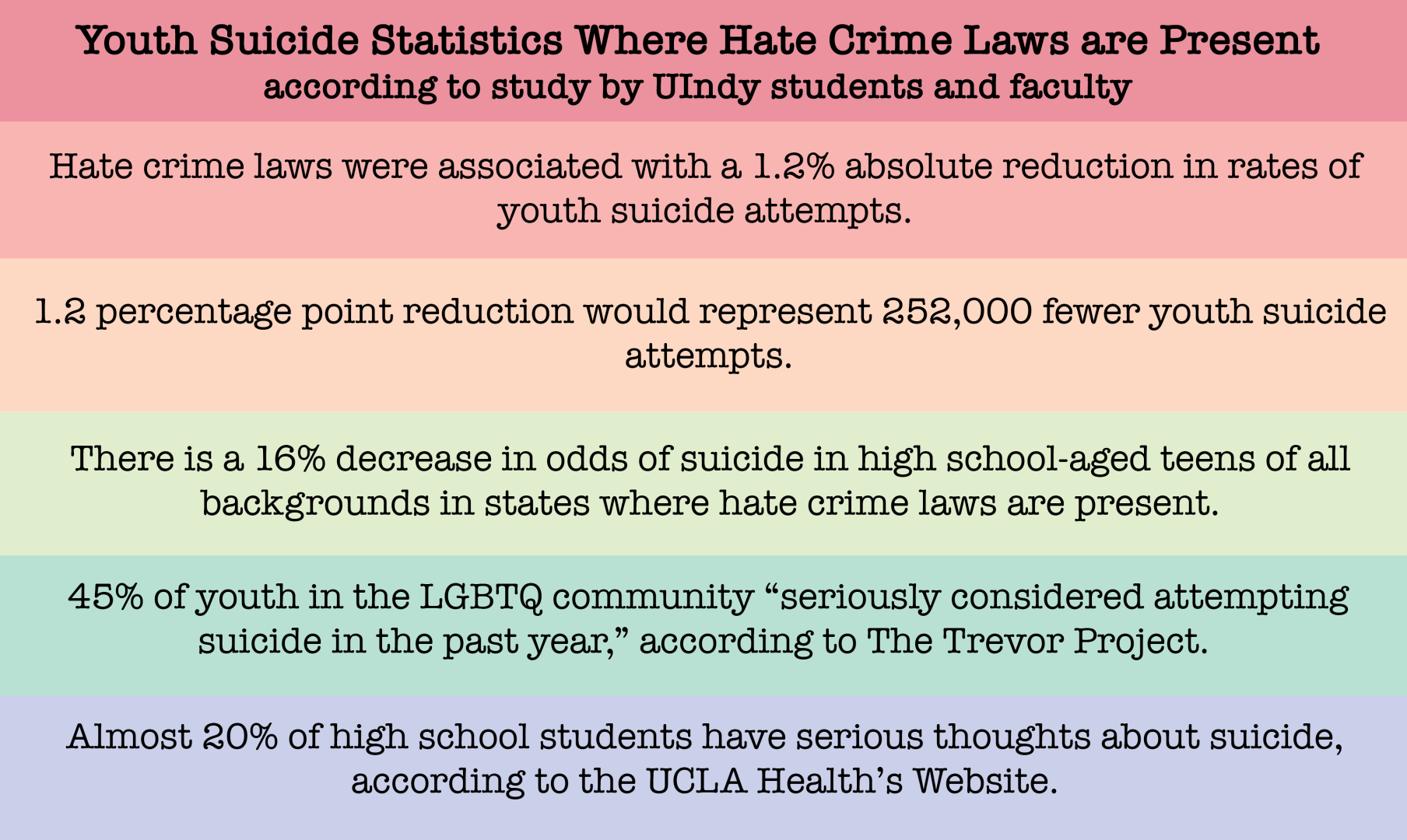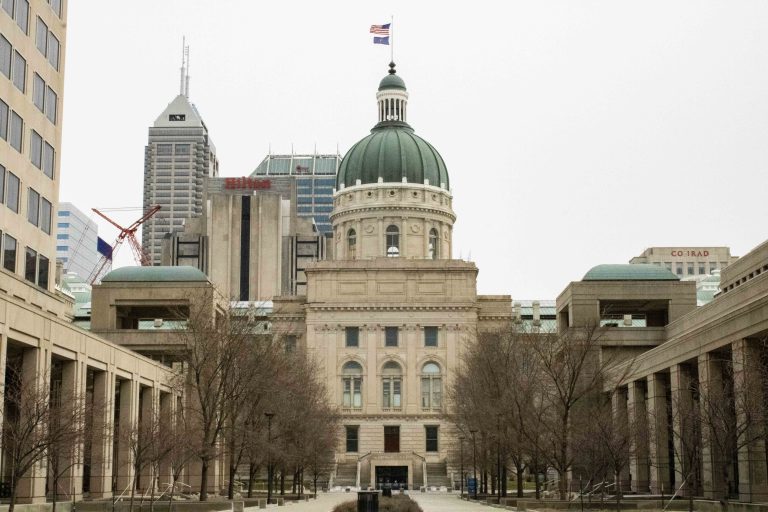Editor’s note: This article may contain upsetting content related to mental health. Please visit your nearest emergency room or call the Suicide and Crisis Lifeline at 988 if you need help.
The dissertation of recent graduate of the University of Indianapolis’ Graduate Program of Clinical Psychology Keeya Prairie inspired a research study that was published in the American Psychological Association’s academic journal “Psychology, Public Policy, and Law.” The study details the effects that state hate crime laws have on young people.
Prompted by Prairie’s research, a group of faculty and students from the Graduate Program of Clinical Psychology, including Prairie, concluded from their study that when states enact and enforce specifically worded hate crime laws (HCLs), suicide attempt rates among teens drop remarkably.
The national government enforces federal hate crime laws that prosecute certain crimes motivated by race, color, national origin, religion, sexual orientation, gender, gender identity and disability on the basis of the Civil Rights Act of 1968, according to the United States Department of Justice website. However, most states opt to include further specification and protections in their state legislation for state prosecution purposes.

The research found that HCLs must be specific in whom they are protecting– primarily sexual minorities. To reduce youth suicide rates, legislation must include clear-cut wording that says hate crimes against people in the LGBTQ community is in worse defiance of existing crime laws, according to the study.
“Enumeration has serious consequences and implications, as our study found. Those consequences are related to the lives of young people. Not just sexual minorities, but also heterosexual youth are protected when laws enumerate,” Prairie said.
Prairie’s advisor, Associate Professor in the Graduate Department of Clinical Psychology Aaron Kivisto, said via email that “enumerated HCLs were associated with a 1.2% reduction in youth suicide attempts,” which translates to around 252,000 fewer suicide attempts in teens.
Data for the UIndy study was taken from 27 states that have enacted HCLs since 1991 and from the Youth Risk Behavior Survey, a Centers for Disease Control and Prevention (CDC) survey of high school students asking about general health-related practices and factors. The UIndy study concluded that states that did not express specific protection for those in the LGBTQ community did not see a decrease in suicide attempt numbers.
According to the State of Indiana’s website, suicide rate in Indiana has been above the national average since 2000, and was the state’s highest in more than five decades in 2017. The CDC reports that Indiana’s youth suicide rate is not only higher than the national average but also among the top ten U.S. state for the highest percentage of increase.
Currently, the State of Indiana does not include explicit wording that a hate crime can be motivated by gender/sex or gender identity, according to the Justice Department. Indiana House Representative Greg Porter (D-Indianapolis) has been advocating for Indiana to adopt stricter HCLs for more than 20 years. Indiana passed an HCL in 2019, but Porter said he voted against it because he felt like it was too ambiguous. Porter thinks that the law is not inclusive enough.
“It wasn’t about having legislation,” Porter said. “It was about checking a box to have the perception of having a hate crime [law].”
According to the findings from the study, Indiana’s HCL is not effective when it comes to preventing youth suicide attempts.
Both the UIndy researchers and Porter think change is possible. They said that in order to make change happen, people must engage, call local legislators and vote. Prairie expressed that people can converse among friends and family, as well as protest in order to make an impact.
“Voting is power,” Porter said. “To let your voices be heard is powerful.”
Prairie hopes that the findings of this study encourage others to research how HCLs affect other minority groups.
“There is yet to be research… on how hate crime laws may protect against suicide in [other minorities],” Prairie said. “I just think that this research could help us learn a lot more about what makes hate crime laws effective…. Enumeration matters.”







